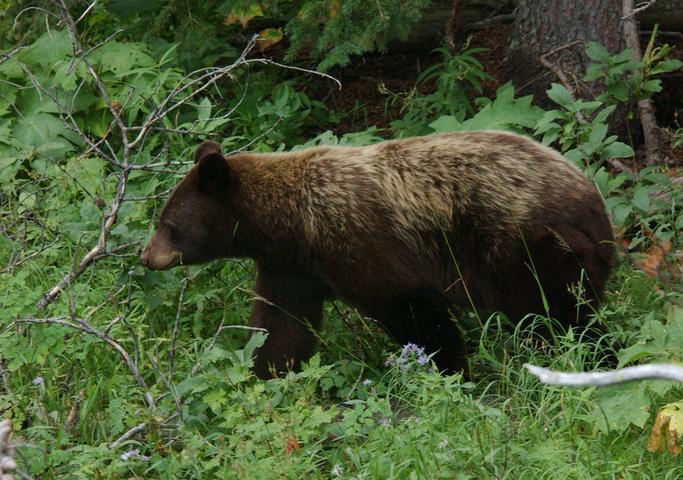
If people want fewer black bears to be killed by Colorado wildlife officials, communities should work on ways to keep bears away from trash and other sources of potential food. For instance, communities could require bear-proof trash containers, says Jerry Apker, state bear biologist with Colorado Parks and Wildlife.
"It's a decision that if you don't want to see bears euthanized, or as many bears euthanized, those are the kinds of responsible actions that communities will have to take," he says.
Yet many communities across the state do not require bear-proof containers, he adds, and Colorado Parks and Wildlife cannot mandate them, either. His agency works to educate Coloradans on living with bears in their midst, offering tips like cleaning the grease out of BBQ traps because bears look to bulk up on fatty foods in the fall. Even bird feeders are a source of food for bears.
Last week, Colorado Matters reported that in the five years between 2009 and 2013, state wildlife officials euthanized 529 bears. That's the most recent data available and represents a significant rise over the the prior five years -- 2004-2008 -- when 173 bears were killed by the state.
Euthanizations have grown along with Colorado's human and black bear populations, Apker says.
State wildlife officials employ a "two strikes" policy, tagging a bear the first time it is involved in a conflict with people and killing it the second. If a bear is deemed aggressive, however, wildlife officials will euthanize it on the spot.
The number of bears deemed threatening and slain by private landowners is up in recent years, as well, as are the number of bears euthanized by federal agents.
A community that provides a "good example" of how to reduce human-bear conflicts is Snowmass Village, Apker says. That community has designed bear-proof trash containers and implemented other strategies meant to minimize conflicts with bears, he says.








